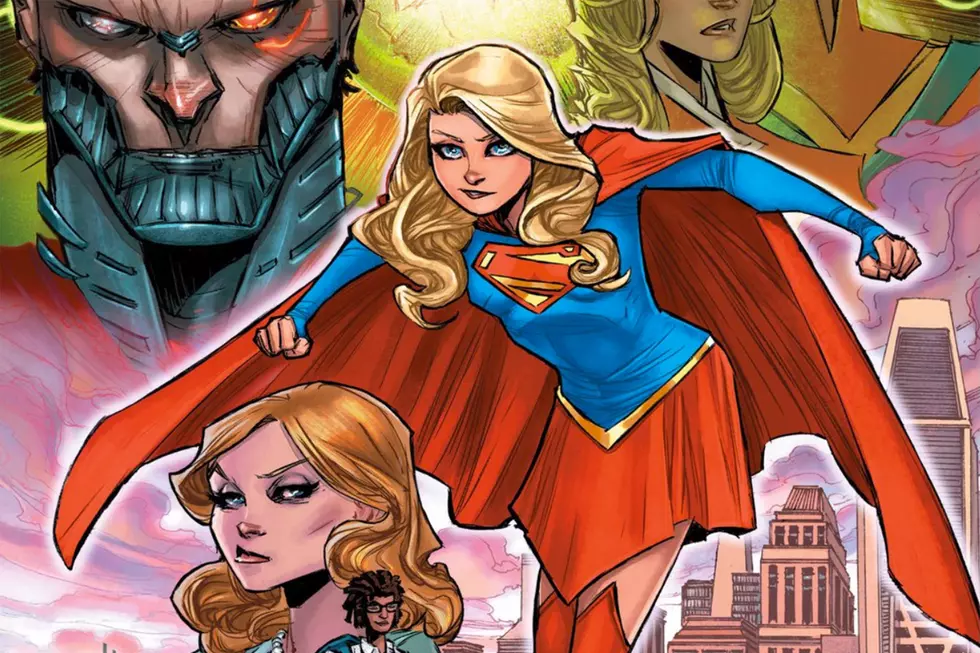
Morrison x Urasawa: Mining the Past Without Strip-Mining It

Naoki Urasawa's "Pluto" is probably one of the best comics I've ever read. It's stark, uncompromising, driven, virtuosic, addictive and bull-headedly optimistic. Despite being an adult adaptation of a children's pop-culture phenomenon, it doesn't fall into the common trap of inserting airport-novel sleazy melodrama. There's nothing deconstructionist about "Pluto."
Unlike a plethora of American comics that have taken the same tack, it's not about subverting the original mood or intent, it's about celebrating and dealing with it on a more intellectual, humanly complex level. This is hardly new ground for Urasawa, but the way "Pluto" engages its source material really provides a fascinating contrast to books like Brad Meltzer's "Identity Crisis" or James Robinson's "Cry for Justice."
In the face of that contrast, though, one can also find a solid comparison. Urasawa's attitudes regarding the optimistic, heroic material of his youth are very similar to those of Grant Morrison's – they don't try to undercut the characters or that youthful optimism, instead they refract it through the prism of adulthood. Much as Morrison's Superman retains all of the good-heartedness and magnanimity of his Silver Age incarnation, Urasawa's Astro Boy isn't suddenly portrayed as naïve or immature in "Pluto."
The gut-level reaction to the bright-eyed, anti-war optimism of Tezuka's original work is that the adult world is too complex, too nuanced for such a principled viewpoint. Books like "Watchmen" or "Identity Crisis" take that tack with American superhero material; they're both about scratching under the shiny veneer and finding the rotten underside of a metaphorical golden age, about how, in a grown-up world, pragmatism trumps idealism.
Morrison has stated about his work on "All Star Superman" that he feels Superman is, rather than a childish power fantasy, actually a rather adult one – it's about a guy who goes about his day with a regular job, fulfills his duties, operates as a member of society and, in secret, uses what makes him special to better the lives of others. Kent doesn't use his powers to elevate himself above others, he uses them to get closer to them and understand them. The hopefulness for the future demonstrated in many Superman stories isn't childlike naïveté, it's the responsibility of an adult.
Throughout the course of "All Star Superman," Clark comes to terms with his own approaching demise, making peace with his friends and family and trying to accomplish as much as possible in the time he has left. When he finds out he has a year to live, he doesn't even so much as get angry; he quickly accepts what he cannot change and moves on to what actions he can take. This isn't the behavior of a childhood power fantasy, it's the behavior of an insanely responsible and decent adult.

Urasawa's Astro Boy is similarly optimistic. The boy's a classic Pinocchio figure, constantly aging but stuck within his static, childlike body, always wanting to be a real boy – but during the events of "Pluto," he instead finds himself becoming a man, working through the pessimism of adolescence in a stunning fight sequence with Pluto before coming to a fantastically mature and adult epiphany: "nothing comes of hatred."
A mature, adult version of Astro Boy isn't him embracing violence or pessimism or single-minded hatred, the mature version of Astro Boy contains the same childlike optimism he always had, simply filtered through the understanding that adulthood brings. The necessity of lying to save the feelings of people you love. The fact that friends and loved ones will disappoint you. The capacity to have compassion for your enemy, and work together towards a common goal. His body will always be that of a child, but at the conclusion of "Pluto" Astro Boy is unquestionably a man.
It's no coincidence that "All Star Superman" and "Pluto" are two of the most critically acclaimed comics of the last few years, never mind their similarities as creative, adult re-engagements with childhood material. Where many "adult" superhero comics only went as far as late adolescence, burning with a sort of punkish fury at the world and a desire to change it ("The Authority," "Ultimates"), these two are about how best to serve the world you live in now and better the lives of the people around you. Responsibility, not desire. Compassion, not anger. These are the hallmarks of a truly adult hero, and this is why Morrison and Urasawa have found such success. It's a formula that far more superhero comics could use to draw from in their search for hamfisted "maturity."
More From ComicsAlliance









